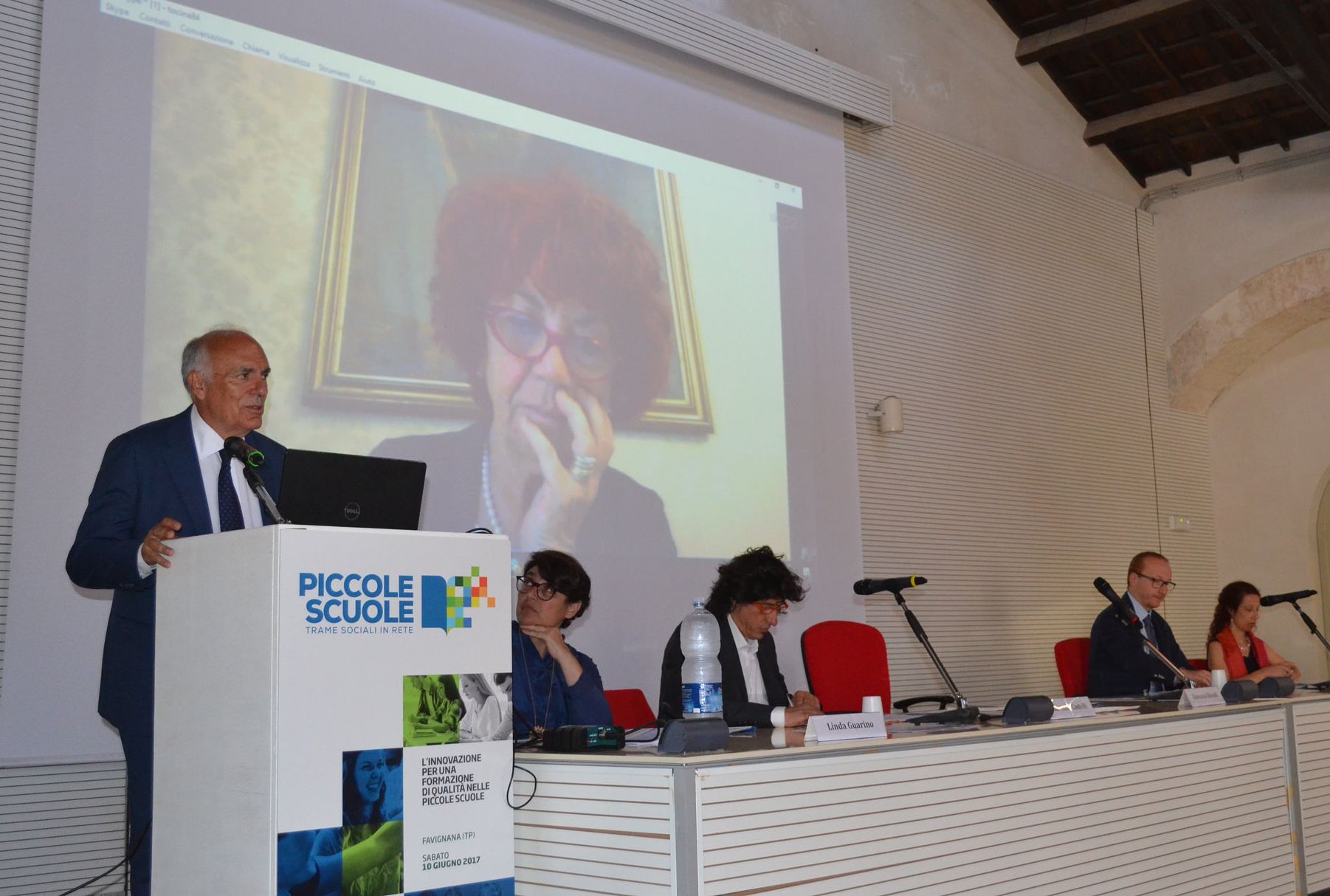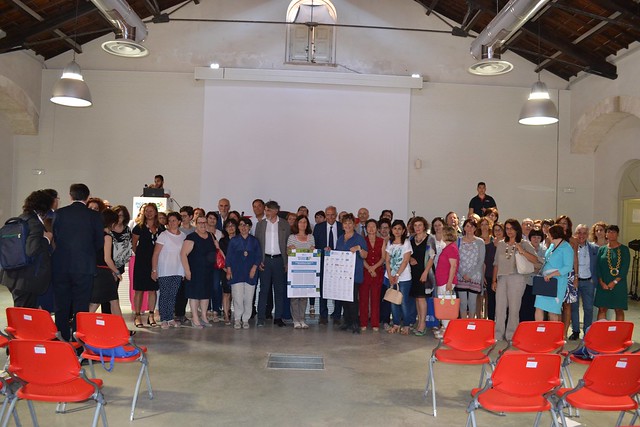indireinforma
 ">
">
The conference, organised by Indire, “Innovation for quality education in small schools” was held on Saturday, 10, June, in the ex Stabilimento Florio in Favignana (TP).
The purpose of the event was to promote and disseminate inclusive didactic practices and to reflect, together with headmasters, teachers and local administrators, on the opportunities offered by new technologies within the already established National Network of Small Schools.
In Italy, the theme concerns about 900,000 students from 1,333 mountain and island schools. The teachers and support teachers involved are over 90,000, distributed in 47,486 classes and 1,990 mixed-age classes. These schools face up to many organisational and didactic challenges every day: from the size of the structures to the multi-age classes, from the reduction of the staff allocated, to frequent teachers’ turnover jeopardising teaching continuity.
During the 10 June meeting, representatives of some mountain and island schools across the country signed officially the Small School Manifesto, with the aim of enhancing current experiences and transforming the “small schools” into a landmark for the whole territory.
Indire’s President Giovanni Biondi stated: «As it happened with the “Avanguardie Educative movement“, our research institute has developed and shared with the schools of the network a Manifesto, which will launch a series of activities designed to raise the quality of Education in geographically isolated schools. The signing of the document means that the small schools will be able to take part in the promoted initiatives and propose innovative teaching practices».
Indire has been engaged for years in making the disadvantages of “small schools” become opportunities, and to propose activities that raise the quality of educational interventions in these areas, also through the use of technologies that allow the creation of unbounded educational scenarios.
Valeria Fedeli, Minister of Education said in her videoconference intervention: «Small schools are important resources for our country and for all students living in isolated and hard-to-reach areas. Quality education diffused all over the national territory is an advantage for the entire country. Apparent disadvantages, such as small or multi-age classes, and distance from big centres, can be transformed into resources and opportunities for didactic experimentation. The small schools represent the schools of the future. We therefore welcome their Manifesto and their desire to create a network. The Ministry of Education and Indire will support these schools, which through new teaching models and the use of technologies can overcome the obstacles and difficulties they experience on a daily basis».
Over the years, the research carried out by Indire made it possible to offer teachers of the Small Schools Network some well-established models: a specific one on “shared didactics“, with the daily use of videoconferencing between two or more classes of different educational institutions; and one oriented to the “extended learning environment“, through which one or more classes work on a common disciplinary project, and organise periodic meetings between teachers, students and experts by making a reasoned and intelligent use of technology and distance teaching. The former Under Secretary for Education, Davide Faraone, has thanked Indire, on videoconference, for the work carried out during the last years to promote and disseminate inclusive didactical practices for isolated institutes.
Participated in the conference, among other guests: the Mayor of Favignana, Giuseppe Pagoto; the owner of the Stabilimento Florio, Luigi Biondo; the Prefect of Trapani, Giuseppe Priolo; the Director of the USR Sicily, Luca Girardi; and the teacher of the “Rallo” Institute in Favignana, Linda Guarino.
«School is changing today and is going to overcome the rigid division into classes and traditional learning times. If the small schools focus on their specific characteristics due to their territory, they can act as example models and be at the forefront of the transformation of national education», President Biondi concluded.


